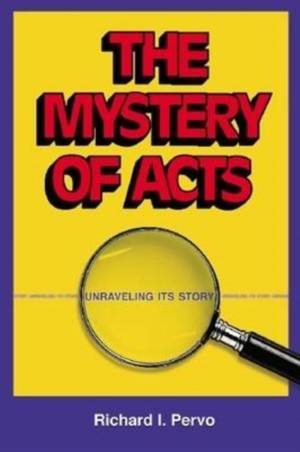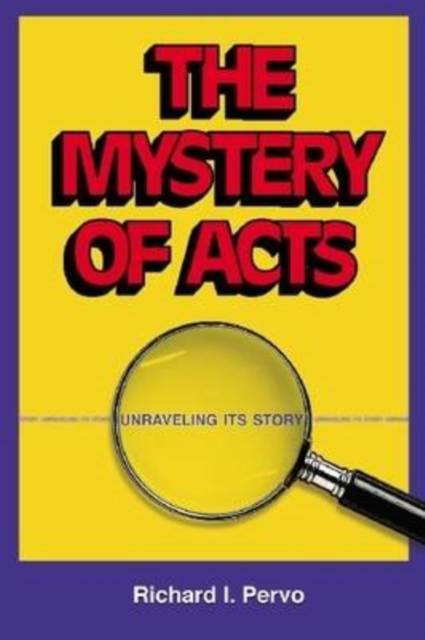
- Afhalen na 1 uur in een winkel met voorraad
- Gratis thuislevering in België vanaf € 30
- Ruim aanbod met 7 miljoen producten
- Afhalen na 1 uur in een winkel met voorraad
- Gratis thuislevering in België vanaf € 30
- Ruim aanbod met 7 miljoen producten
Zoeken
Omschrijving
The author of Acts unwittingly committed a near-perfect crime: He told his story so well that all rival accounts vanished with but the faintest of traces. And thus future generations were left with no documents that recount the history of the early Christian tradition; because Acts is not history. According to Richard Pervo, 'Acts is a beautiful house that readers may happily admire, but it is not a home in which the historian can responsibly live.' Luke did not even aspire to write history but rather told his story to defend the gentile communities of his day as the legitimate heirs of Israelite religion. In The Mystery of Acts, Pervo explores the problem of history in Acts by asking, and answering, the fundamental questions: Who wrote Acts? Where was Acts written? When was Acts written? Why was Acts written? How was Acts written? The result is a veritable tour-de-force that enlighten, entertains, and brings Acts to life.
Specificaties
Betrokkenen
- Auteur(s):
- Uitgeverij:
Inhoud
- Aantal bladzijden:
- 196
- Taal:
- Engels
Eigenschappen
- Productcode (EAN):
- 9781598150124
- Verschijningsdatum:
- 9/12/2008
- Uitvoering:
- Paperback
- Formaat:
- Trade paperback (VS)
- Afmetingen:
- 156 mm x 228 mm
- Gewicht:
- 267 g

Alleen bij Standaard Boekhandel
+ 77 punten op je klantenkaart van Standaard Boekhandel
Beoordelingen
We publiceren alleen reviews die voldoen aan de voorwaarden voor reviews. Bekijk onze voorwaarden voor reviews.











